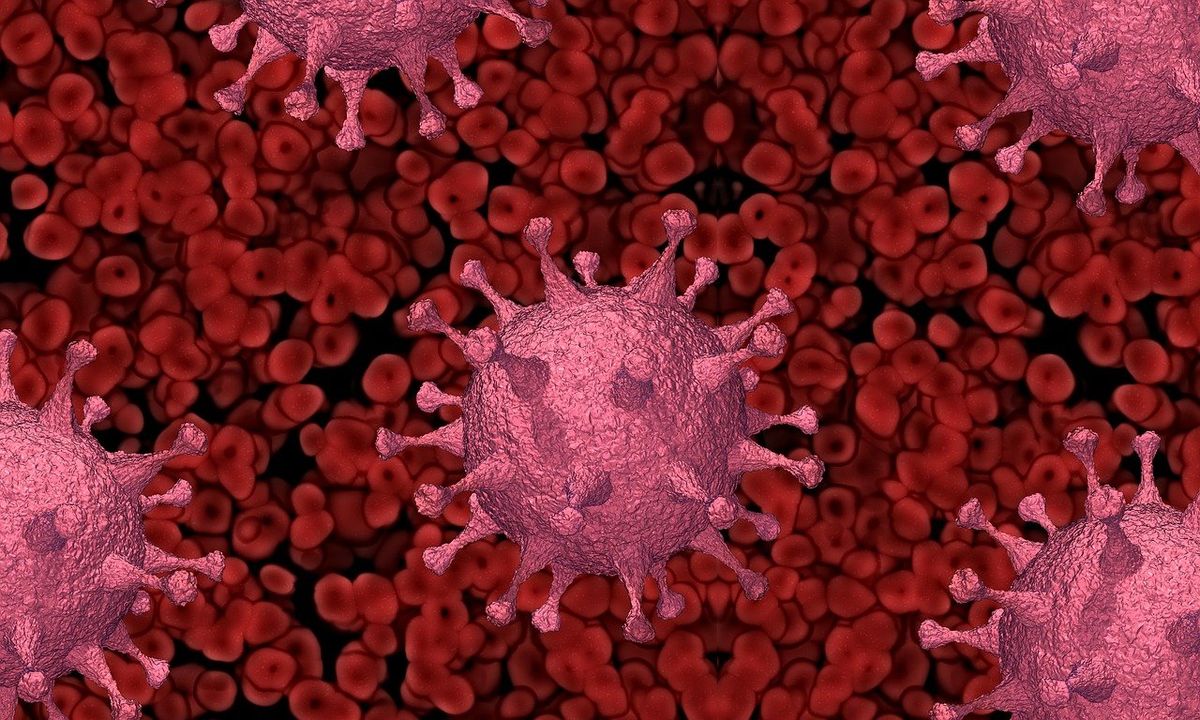The Oxford/AstraZeneca vaccine offers as little as 10% protection against the Covid variant first seen in South Africa, researchers have suggested.
A study on the efficacy of the Oxford-AstraZeneca vaccine has shown that it fails to prevent mild and moderate cases. This has come as disappointing news for South Africa and other countries. In South Africa, Scientists say the variant accounts for nearly 90% of all new Covid cases.
Covishield is the local name for the Oxford-AstraZeneca vaccine developed in the UK and manufacture by Serum Institute in India.
The small scale trial, which involved a sample size of 2,000 people, found that the vaccine offered “minimal protection” against mild and moderate cases against the new strain.
However, many experts are hopeful that the vaccine will still prove to be effective at preventing severe cases.
South Africa has already received one million doses of the Oxford-AstraZeneca jab and was preparing to start vaccinating people.
It has recorded almost 1.5 million coronavirus cases and more than 46,000 deaths since the pandemic began — a higher toll than any other country on the African continent.
Health Minister Zweli Mkhize stated that his government would wait for further advice on how best to proceed with the AstraZeneca vaccine in light of the findings.
In the meantime, he said, the government would offer vaccines produced by Johnson & Johnson and Pfizer in the coming weeks.
What does the study say about serious cases?

The trial in question was carried out by researchers at the University of the Witwatersrand in South Africa and the UK’s Oxford University but is still to be peer-reviewed.
The trial’s chief investigator, Prof Shabir Madhi, said it showed that “unfortunately, the AstraZeneca vaccine does not work against mild and moderate illness”.
[rb_related title=”You May Also Like” total=”2″]
Prof Madhi said the study had not been able to investigate the vaccine’s effectiveness in preventing more serious infections. He attributes the reason to a relatively young and helathy sample population of the study with a mean age of 31 years.
They didn’t represent the demographic of people most at rist of severe symptoms from the virus.
The study notes that efficacy against severe COVID-19 infection from this variant was not assessed. The analyses being submitted in the pre-print show the vaccine had high efficacy against the original coronavirus non-B.1.351 variants (old strain) in South Africa.
Researchers from South Africa and the UK found that viral neutralization by sera induced by the ChAdOx1 nCoV-19 coronavirus vaccine against the B.1.351 (new strain) coronavirus variant were substantially reduced when compared with the ‘original’ strain of the coronavirus.
Andrew Pollard, Professor of Paediatric Infection and Immunity, and Chief Investigator on the Oxford vaccine trials said
‘This study confirms that the pandemic coronavirus will find ways to continue to spread in vaccinated populations, as expected, but, taken with the promising results from other studies in South Africa, such as those using a similar viral vector, vaccines may continue to ease the toll on health care systems by preventing severe disease.’
The vaccine’s shares some similarities with the one produced by Johnson & Johnson, which was found in a recent study to be highly effective at preventing severe disease in South Africa, suggesting it would still prevent serious illness, according to Prof Madhi.
“There’s still some hope that the AstraZeneca vaccine might well perform as well as the Johnson & Johnson vaccine in a different age group demographic that I address of severe disease,” he told the BBC.
There is still hope that the vaccine may work where it is needed most — the severe cases
Many other experts were also hopeful that the vaccine remained effective at combating more serious cases.
“What we’re seeing from other vaccine developers is that they have a reduction in efficacy against some of the variant viruses and what that is looking like is that we may not be reducing the total number of cases, but there’s still protection in that case against deaths, hospitalizations, and severe disease,” Prof Sarah Gilbert, Oxford’s lead vaccine developer, told the Andrew Marr Show of BBC on Sunday.
She said developers were likely to have a modified version of the injection against the South Africa variant, also known as 501.V2 or B.1.351, later this year.
You May Also Like: New UK Coronavirus Strain May Be More Deadly Says UK PM Boris Johnson
What has changed for the vaccine?
The mutations seen in South Africa change the part of the virus that the vaccines target. It means all the vaccines that have been produced so far are likely to be affected in some way.
Trials for Novavax and Janssen vaccines that were carried out in South Africa showed less effectiveness against the same new variant. Both are currently awaiting approval from the UK and other regulators.
The new therefore doesn’t seem to be all that surprising. It is the magnitude that is important. The fact that it now only has a “minimal” effect according to reports is concerning scientists — the other vaccines showed effectiveness in the region of 60% against the South African variant. It was lesser yet significant.
Experts believe we should be careful about rushing to judgment. The study was small so there is only limited confidence in the findings. There is still hope the vaccine will prevent serious illness and hospitalization.
What this once again illustrates is the pandemic is not going to end with one Big Bang. Vaccines are likely to have to change to keep pace with the virus. Progress will be incremental. But vaccines are still the way out of this.
Work is already underway at the University of Oxford and in conjunction with other partners to produce a 2nd generation of the vaccine which has been adapted to target variants of the coronavirus with mutations similar to B.1.351, if it should prove necessary to do so.
What do we know about the variant?
The South Africa variant carries a mutation that appears to make it more contagious or easy to spread.
However, there is no evidence at present that it causes more serious illness for the vast majority of people who become infected. As with the original version, the risk is highest for people who are elderly or have significant underlying health conditions.
At least 20 other countries including Austria, Norway and Japan, have found cases of the variant.
As per WHO, the scientists have now found that these variants do tend to spread faster, they’re more transmissible or more infectious. So that’s the worrying part. However, so far, they do not seem to cause more severe illness or a higher death rate, or any sort of different clinical manifestations.
They seem to behave pretty much as the previous viruses were behaving and cause a pretty similar kind of disease.
Health officials say all is not lost
Many South Africans have responded with shock and disappointment at the news that the 1.5 million doses of the Oxford/AstraZeneca vaccines will not be as useful as experts had expected against the new variant first discovered here in November.
While there are now more questions than immediate answers, the message from health officials is that all is not lost. They believe the vaccine may still be effective in preventing severe illness and go some way in reducing the number of people who need to be admitted into the hospital for treatment.
This is important in a country where some 80% of the population cannot afford private health care and rely on state hospitals – which are currently overstretched – for health care.
So what’s the plan now? South Africa’s health minister has said they will take inputs from local scientists on how to repurpose the vaccine to get the most out of it.
It has been suggested that the vaccine may be useful if given to the older population and to people with co-morbidities.
The lead investigator on the South African trial of AstraZeneca’s vaccine said he believed the vaccine had a major role to play in Africa and globally, despite data showing it offered minimal protection against mildtomoderate COVID19 disease by the country’s dominant virus variant.



